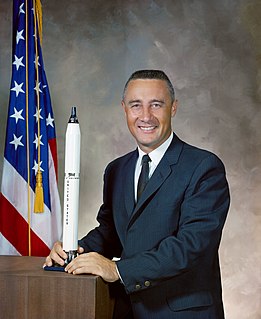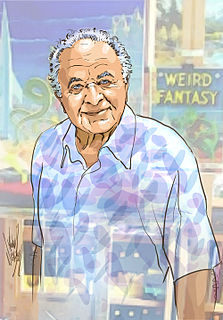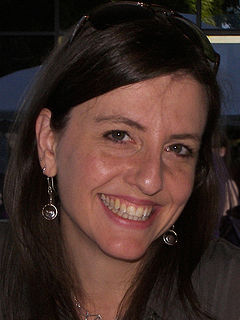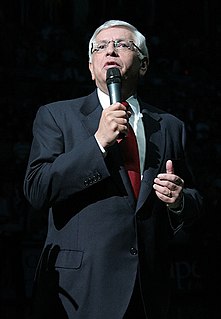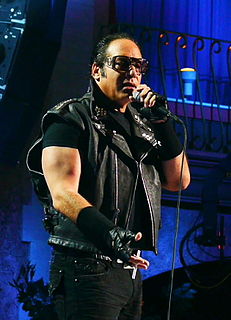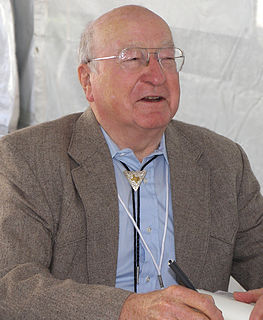A Quote by Madeleine Albright
If intelligence were a television set, it would be an early black-and-white model with poor reception, so that much of the picture was gray and the figures on the screen were snowy and indistinct. You could fiddle with the knobs all you wanted, but unless you were careful, what you would see often depended more on what you expected or hoped to see than on what was really there.
Related Quotes
When I look in the mirror I see the woman I knew I wanted to be as a child. When I was a young girl, I had a vision of the woman I wanted to be. And I often reached out to women of color in America for inspiration. My mother would regularly buy Essence and Ebony. I would look at those magazines filled with images of professional, intelligent women of color who knew who they were, who enjoyed who they were, and who were surrounded by other people who enjoyed who they were. When I look in the mirror, I'm really glad that that's what I see today, but it took awhile to get here.
It had long been true, and prisoners knew this better than anyone, that the poorer you were the more likely you were to end up in jail. This was not just because the poor committed more crimes. In fact, they did. The rich did not have to commit crimes to get what they wanted; the laws were on their side. But when the rich did commit crimes, they often were not prosecuted, and if they were they could get out on bail, hire clever lawyers, get better treatment from judges. Somehow, the jails ended up full of poor black people.
In 1990, when we started the Black Community Crusade for Children, we were always talking about all children, but we paid particular attention to children who were not white, who were poor, who were disabled, and who were the most vulnerable.Parents didn't think their children would live to adulthood, and the children didn't think they were going to live to adulthood. That's when we started our first gun-violence campaign. We've lost 17 times more young black people to gun violence since 1968 than we lost in all the lynching in slavery.
For black people who are really dark - and a lot of black people were averse to be dark skinned - it was believed that you'd be so dark that you couldn't see them at night unless they were smiling or you could see the whites of their eyes. At one time, it was a sharp comic barb that got levelled at some people.
We can see now that we Americans were caught unprepared, because we were ordinary human beings, following the best advice we had at the time. No one would have guessed in 1941 that we would be attacked in such an unsportsmanlike manner as we were. No one could have visualized Pearl Harbor, either out there or in Washington. But if we had known then what we know now, we would have expected an attack in 1941.
When I got into comedy, which was really for acting, I would see the guys who would be considered great today. They were great, but after a few minutes I could get kind of bored because they wouldn't move around. The dress code was boring to me. I didn't want to see the guy next door when I'm watching a performer. I wanted to see someone I would pay a ticket for.
If real Satanism were allowed the kind of television time that Christianity has now, the kind of drawing out and patience that interviewers give sports figures, or the kind of coverage that a baseball game gets, Christianity would be completely eliminated in a few short months. If people were allowed to see the complete, unbiased truth, even for 60 minutes, it would be too dangerous. There would be no comparison.
He liked to think that Heaven was what each person wanted it to be. He could see no future in lying around on a fluffy white cloud and listening to somebody playing on a harp, a picture of Heaven he had seen numerous times in one form or another. Even if it was that way, his personal preference would have run more to the fiddle.

